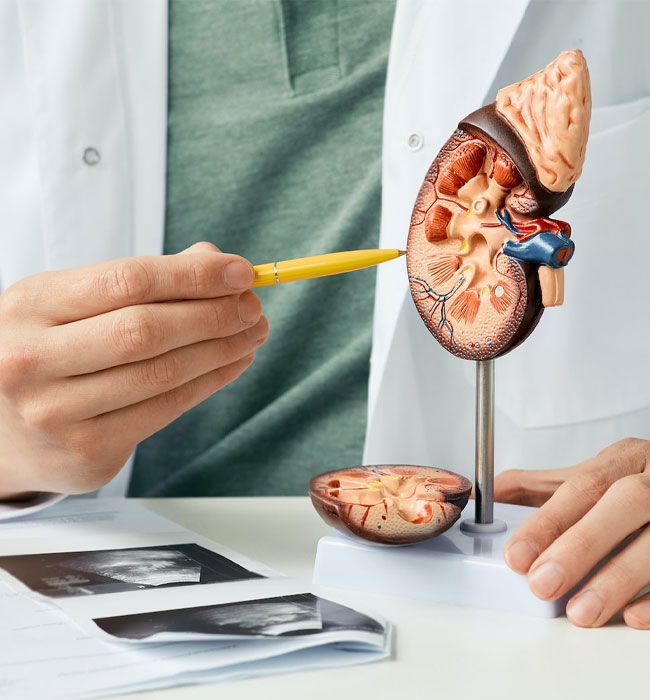Chronic Kidney Disease
A Specialist with Years of Experience
Dr. Gura has decades of experience and has helped improve internal health for countless patients over the years. He continually improves his treatment methods, staying up to date on the latest in kidney health care and research. His commitment to patient well-being has made him a local leader in kidney health in the Los Angeles area, improving the lives of his patients through effective, compassionate care, saving many lives.
Table of Contents
Toggle
A Professor & Educator with Adaptive Treatment Solutions
Dr. Gura has served as a university professor teaching medical students in UCLA since 1992. He has given classes on kidney diseases and dialysis for many years and taught in many medical schools around the world.
The causes and severity of kidney disease can vary from one patient to the next. Thus, working with an experienced internist is essential to receiving the right treatment for symptom relief and condition management. We supplement all treatments with routine testing to track efficacy, closely monitoring how a condition and patient respond to treatment.
Chronic versus Acute Kidney Concerns
Chronic Kidney Disease Q & A
Risk Factors for Chronic Kidney Disease
While some causes of kidney disease might be out of a patient’s control, sometimes lifestyle changes can prove protective. Some common risk factors for CKD include:
- Diabetes
- Heart disease
- High blood pressure
- Family history of CDK
- Older age
- Obesity
Begin Working With a Specialist Today
Dr. Gura has been serving Los Angeles for years as a leading kidney specialist. His approach to managing chronic kidney disease in patients focuses on their whole well-being, providing both health and symptom improvements through personalized approaches to management.

